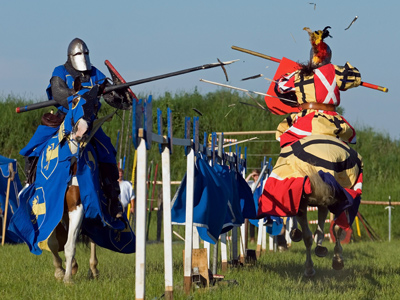
Ask the AI Tutor
Need help with Antonyms 03? Ask our AI Tutor!
AI Tutor - Lucy
Connecting with Tutor...
Please wait while we establish connection

What is an antonym of enemy?
Antonyms 03
Antonyms are opposites. Beyond big/small, precise pairs sharpen meaning and tone. Practise choosing exact opposites that make descriptions, explanations, and arguments clearer.
1 .
Belief
Confidence
Conviction
Disbelief
Impression
Some opposites are formed by adding the prefix, dis-
2 .
Enemy
Adversary
Ally
Foe
Opponent
Other antonyms of "enemy" include "friend" and "supporter"
3 .
Careful
Careless
Conscientious
Meticulous
Scrupulous
Some antonyms are formed by affixing -less
4 .
Attention
Care
Concentration
Disregard
Thought
Adding the prefix in- forms some antonyms, as with "inattention"
5 .
Changeable
Constant
Fluid
Inconsistent
Inconstant
Opposites of "changeable" include "unchangeable" and "reliable"
6 .
Invincible
Beatable
Indestructible
Unbeatable
Unyielding
"Invincible" means "unconquerable"
7 .
Fierce
Ferocious
Frightening
Gentle
Threatening
These are also antonyms of "fierce": "calm", "kind", "mild" and "placid"
8 .
Amiable
Agreeable
Friendly
Likeable
Unfriendly
Other antonyms of "amiable" include "hostile" and "unkind"
9 .
Promote
Advance
Demote
Elevate
Upgrade
Some antonyms are formed by adding the prefix, de-
10 .
Beneficial
Advantageous
Detrimental
Helpful
Rewarding
Other antonyms of "beneficial" include "useless" and "harmful"
**Unlimited Quizzes Await You! 🚀**
Hey there, quiz champ! 🌟 You've already tackled today's free questions.
Ready for more?
Ready for more?
🔓 Unlock UNLIMITED Quizzes and challenge yourself every day. But that's
not all...
not all...
🔥 As a Subscriber you can join our thrilling "Daily Streak" against other
quizzers. Try to win a coveted spot on our Hall of Fame Page.
quizzers. Try to win a coveted spot on our Hall of Fame Page.
Don't miss out! Join us now and keep the fun rolling. 🎉
**Unlimited Quizzes Await You! 🚀**
Hey there, quiz champ! 🌟 You've already tackled today's free questions. Ready for more?
🔓 Unlock UNLIMITED Quizzes and challenge yourself every day. But that's not all...
🔥 As a Subscriber you can join our thrilling "Daily Streak" against other quizzers. Try to win a coveted spot on our Hall of Fame Page.
Don't miss out! Join us now and keep the fun rolling. 🎉






